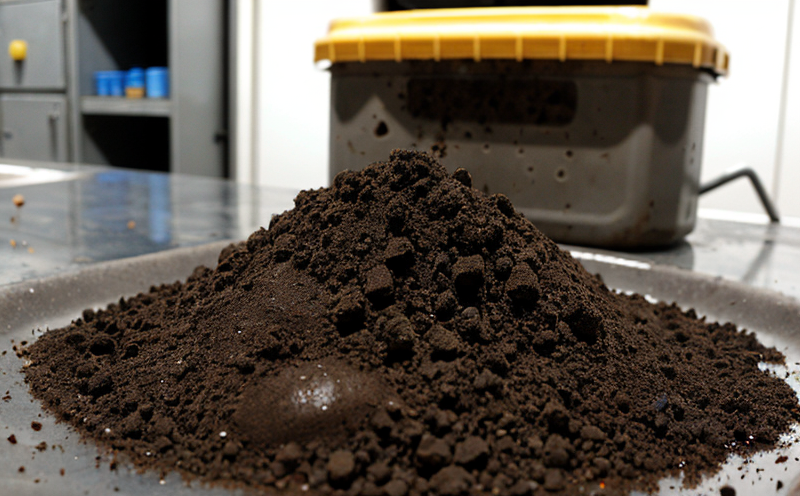Wood Product Residue Profiling
The process of wood product residue profiling involves a comprehensive analysis aimed at identifying and quantifying various residues present in different types of wood products. This service is critical for ensuring the safety, quality, and compliance of wood-based materials across numerous industries. Wood products often contain additives, fillers, or other substances that can impact their performance and environmental footprint.
The aim is not only to detect these residues but also to understand how they behave under various conditions such as temperature, humidity, and age. This profiling helps in assessing the long-term stability of wood-based materials, which is crucial for industries reliant on durable and safe products.
Residue analysis typically involves sophisticated techniques like chromatography, spectroscopy, and mass spectrometry to break down complex samples into their constituent parts. The goal is to establish a baseline profile that can be used to monitor changes over time or compare different batches of wood products. This approach ensures that any deviations from the expected composition are quickly identified.
For instance, in the production of wooden furniture, it's essential to know the exact amounts and types of adhesives and coatings used. Similarly, in the construction sector, understanding the presence of formaldehyde or other volatile organic compounds (VOCs) is crucial for indoor air quality standards compliance. Our laboratory uses advanced analytical methods aligned with international standards such as ISO 17025 to ensure accuracy and reliability.
Specimen preparation plays a significant role in achieving precise results. Samples must be representative of the entire batch or lot, free from contamination, and properly preserved before analysis. This includes meticulous cleaning and drying processes followed by appropriate cutting techniques depending on the size and shape of the wood product being tested.
The instrumentation used for residue profiling varies based on what needs to be analyzed. Gas Chromatography-Mass Spectrometry (GC-MS), High Performance Liquid Chromatography (HPLC), Fourier Transform Infrared Spectroscopy (FTIR), and Inductively Coupled Plasma Mass Spectrometry (ICP-MS) are some of the key tools employed.
The acceptance criteria for wood product residue profiling depend on specific regulatory requirements or customer specifications. For example, certain industries might have strict limits on permissible levels of formaldehyde in composite wood panels. Compliance with these thresholds ensures that products meet both local and international safety standards.
By offering this specialized service, Eurolab contributes significantly to maintaining high-quality standards within various sectors including furniture manufacturing, construction, and packaging industries. Our expertise guarantees accurate identification and quantification of residues which ultimately leads to safer, more sustainable wood products.
Applied Standards
The residue and contaminant analysis in wood products adheres strictly to international standards such as ISO 17025 for laboratory accreditation. These guidelines ensure that all analytical procedures are conducted under controlled conditions meeting predefined quality assurance measures.
In addition, specific protocols may be dictated by regional regulations like those found within the European Union's REACH Directive which restricts certain hazardous substances in articles and their components. Compliance with these directives is essential for manufacturers wishing to sell products legally across Europe.
For North American markets, compliance with standards such as ASTM D6882-01(2017) on Volatile Organic Compounds (VOCs) content determination becomes necessary. Similarly, Chinese GB/T 35603-2018 provides detailed guidelines for evaluating the environmental labeling of building materials.
Our team stays updated with all relevant regulations and ensures that our analytical methods comply with these requirements ensuring accurate reporting and reliable data interpretation.
Industry Applications
- Furniture Manufacturing: Ensuring the safety of adhesives, finishes, and other additives used in wood furniture.
- Construction Industry: Verifying compliance with VOC limits set by regulations like LEED certification criteria for sustainable design practices.
- Packaging Sector: Analyzing recycled content to ensure it meets the desired quality standards without compromising structural integrity or safety.
- Forestry and Paper Products: Monitoring the effectiveness of preservatives applied during processing steps.
- Carpentry and Joinery: Providing insights into the longevity and stability of custom-built structures made from treated woods.
The detailed residue profiling allows stakeholders in these industries to make informed decisions about material selection, process optimization, and product lifecycle management. By adhering closely to stringent analytical procedures, Eurolab supports sustainable practices that enhance both environmental responsibility and economic efficiency within each sector.
Eurolab Advantages
Expertise: Our multidisciplinary team consists of seasoned professionals with extensive experience in chemical testing and residue analysis. They stay abreast of the latest developments in analytical techniques, ensuring that our services remain state-of-the-art.
Accreditation: Eurolab holds ISO 17025 accreditation, confirming our commitment to maintaining strict quality controls throughout every stage of the testing process.
Comprehensive Reporting: We provide detailed reports that not only list detected residues and contaminants but also interpret their significance within the broader context of industry standards. This helps clients understand potential risks associated with specific compounds and take appropriate actions accordingly.
Custom Solutions: Recognizing that every project has unique requirements, we offer tailored services designed to meet individual client needs whether it be for routine monitoring or one-off evaluations.
Global Reach: With a network of laboratories spread across multiple regions, Eurolab can accommodate requests from international clients seeking local expertise and familiarity with varying regulatory landscapes.





